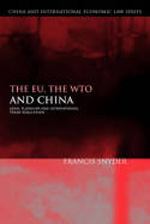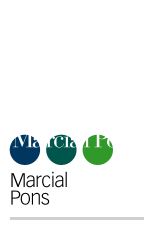The EU, the WTO and China
legal pluralism and international trade regulation
- ISBN: 9781841137049
- Editorial: Hart Publishing
- Fecha de la edición: 2010
- Lugar de la edición: Oxford. Reino Unido
- Colección: China and International Economic Law Series
- Encuadernación: Cartoné
- Medidas: 24 cm
- Nº Pág.: 500
- Idiomas: Español

This book consists of a series of integrated studies of sites of governance, global legal pluralism and the regulation of international trade. It focuses on the EU, the WTO and China and is divided into three parts. Part one surveys the literature on law and globalisation and introduces the theory of sites of governance and the concept of global legal pluralism. It shows that each site of governance has a structural dimension consisting of institutions, norms and dispute resolution processes and a relational dimension which refers to relations between that site and other sites of governance. The totality of sites of governance constitute a new form of global legal pluralism. Part two then focuses on the EU, the WTO and China as three distinct but interrelated sites of governance. Concentrating in particular on the example of antidumping the chapters in this part deal with international legislation, the translation of rules in domestic law, the judicial construction of multi-site governance, the types of rules which are used to regulate international trade and relations between sites, the ways in which relations between sites can create new concepts of international trade law, the transformation of norms from soft law to hard law, and the role of strategic actors, notably national administrations and international companies, in the creation and regulation of contested markets in international trade. Part three develops the main themes further by analysing two specific instances of international trade regulation: the governance of global economic networks, and the governance of global institutions. The final chapter considers ways in which global legal pluralism can enrich and possibly reform the WTO, today the predominant institution in the regulation of international trade, including trade between the EU and China.







